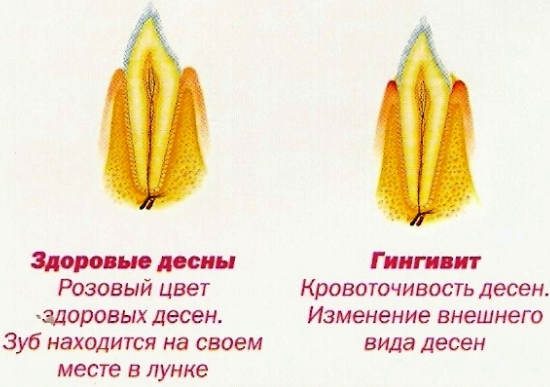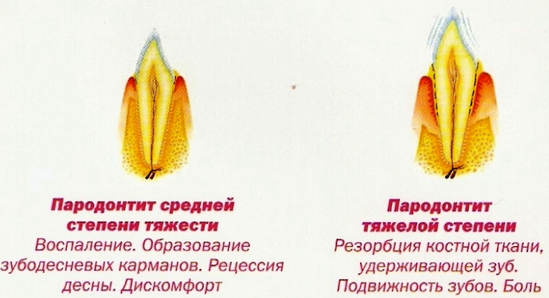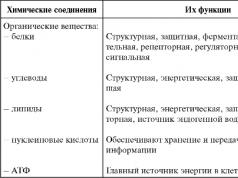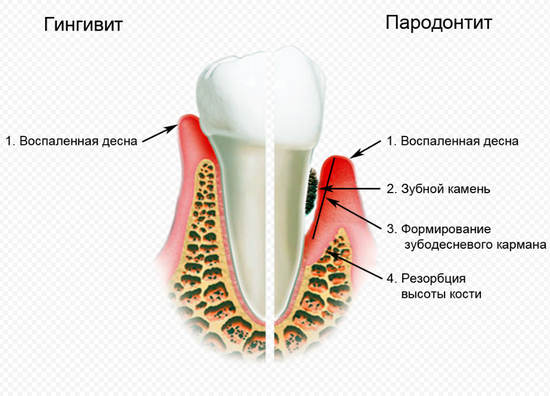 Inflammation of the gums, its treatment at home... Inflammation of the gums is a fairly common occurrence in dental practice. This problem is common today among both adults and children.
Inflammation of the gums, its treatment at home... Inflammation of the gums is a fairly common occurrence in dental practice. This problem is common today among both adults and children.
Signs of gum inflammation
The first symptom of inflammation is the gums and the entire oral cavity to certain products, hot and cold temperature liquids or food. Besides, characteristic features gum inflammation are:
- Redness and swelling of the gums;
- Pain and unpleasant itching in the mouth;
- Bleeding gums, which primarily occurs when brushing your teeth.
If you have these symptoms, especially if they manifest themselves in a complex manner, you should quickly contact your dentist for preventive examination and prescribing appropriate treatment.
After all, if you bring your gums to a neglected state, the disease will progress and lead to more serious consequences than just itching, redness and bleeding. The teeth will become loose until they fall out completely.
However, in folk medicine there are also many healthy recipes that allow you to effectively cope with gum inflammation, be it initial stage illness or a more serious state of affairs.
Causes of gum inflammation
- The most common causes are damage to the mucous membrane of the gums when brushing teeth, eating hard foods, when the gums come into contact with too hot or too cold liquid, etc.
- The mucous membrane of the gums can also be injured due to incorrect or careless installation of crowns, dentures, and pins.
- In addition, gum inflammation is a characteristic process during pregnancy, which is associated with hormonal changes in female body, vitamin deficiency, etc.
- Often the gums become inflamed due to vitamin deficiency, diabetes mellitus, metabolic disorders, or the use of certain pharmacological drugs, in particular oral contraceptives, antidepressants.
Common gum diseases
Rinse for gums with inflammation
So, what is the best way to treat gum disease at home? Where to start?
When advancing discomfort associated with the gums, when symptoms of inflammation appear, the first remedy to resort to is rinsing.
To rinse the mouth, you can use special medicines which are sold in pharmacies. In most cases, you can choose them yourself, without special purpose dentist. But still additional consultation There won't be any need for a doctor.
In addition, for rinsing your mouth with gingivitis, you can independently prepare herbal decoctions, infusions and medicinal solutions with anti-inflammatory and analgesic effects at home. These products primarily clean the surface of the gums, remove food debris from the spaces between the teeth, soothe the gums, relieve irritation and itching, and relieve redness to some extent.
Rinsing the mouth and gums should be done regularly, several times a day, until the desired result is obtained.
A decoction of chamomile, sage, thyme, yarrow, St. John's wort, calendula and oak bark is perfect for this. The principle of preparing a decoction based on any of the listed herbs is simple: 250 ml of boiling water requires 1-2 teaspoons of dry herbs.
The broth must be left to brew for 30 minutes - 1 hour, then strain and rinse your mouth thoroughly.
Toothpastes - as a remedy for gum inflammation
It is difficult to imagine complex treatment of gum inflammation at home without the use of specialized toothpastes (Lakalyut, Parodontax, Sensodyne, Forest Balm), which are designed specifically for people with this problem. Such toothpastes can be found in pharmacies and other specialty stores. They have both hygienic and medicinal properties.
Using toothpaste against inflamed gums can solve many problems - destroy pathogenic microbes from the mucous membrane of the gums, relieve itching and redness, reduce bleeding.
However, dentists note that they cannot be used regularly, the course of treatment should last a maximum of a month, and then a break is necessary.
Traditional recipes against gum inflammation
To relieve gum inflammation yourself at home, you should use the products you have on hand. Eg:
- Tea with garlic juice (a teaspoon of black tea and the same amount of chopped garlic per glass) will help remove the infection.
- So, an excellent remedy against inflammation is honey and bee products, for example, the juices of various medicinal vegetables and fruits, in particular beets, pomegranate skins, etc., are recommended.
- It has a good anti-inflammatory effect; add 5 drops to a glass of water for rinsing.
- You can rinse with a solution of chlorophyllipt (eucalyptus based).
- It is useful to chew pine needles when inflammation of the gums has already subsided; they can be used for preventive chewing - strengthening the gums -.
- An excellent preventive remedy is a beetroot mask for gums. It helps restore the mucous membrane of the gums.
To prepare the mask, you need to take a medium-sized dark burgundy beetroot. It needs to be grated on a fine grater, add a teaspoon to the mixture vegetable oil and stir.
The resulting mixture must be applied to the gums on both sides for 20 minutes, 3-4 times a day. The effect will become visible after 4-5 days.
- Applications with diluted fir oil are shown.
- Can be carried out light massage gums with honey, salt or sauerkraut.
- You can lubricate the inflamed areas with aloe juice or golden mustache juice.
- Chew the leaves for five minutes several times a day, but do not swallow the saliva.
Of course, these are not all the ways to relieve gum inflammation, but they are the simplest and most effective.
Almost everyone has experienced gum disease. The disease may have various signs and course, but in the absence of treatment it will end with irreversible consequences for the teeth. Usually, a problem is indicated by the appearance of blood while brushing your teeth. There are no painful sensations, so the person does not rush to see a doctor.
Subsequently, redness occurs and soft tissues separate from the teeth. Food, and therefore bacteria, enters the free space formed. As a result, it is heard from the mouth bad smell.
Causes of the disease
It is provoked by pathogenic microorganisms that accumulate in dental plaque. Poor hygiene leads to the fact that the latter turns into tartar, which attracts bacteria even more.
Incorrectly selected toothpaste and brush, lack of regular oral hygiene, poor cleaning of the interdental space - these factors lead to the accumulation of microbes.
Inflammation of the gums can be regarded as a sign of immunity. For example, a person may have vitamin deficiency. In this case, the body cannot resist the infections and viruses that attack it.
In particular, this also applies to children, since their immune system is not yet well developed. With a significant deficiency of vitamins, scurvy occurs and mourning occurs.
Internal systemic diseases can also lead to illness. Problems arise in patients with diabetes, leukemia, pathologies endocrine system. In children, bleeding gums are often the first sign of leukemia. Children can also inherit a predisposition from their parents.
Another common cause is smoking. It weakens the body, causes dryness and can become an impetus for the proliferation of microbes.
During pregnancy, this phenomenon is caused by hormonal changes. At the same time, it needs to be treated by everyone by possible means, because after childbirth, as a rule, problems only intensify.
Preventive medications, for example, antidepressants, contraceptives, antihistamines, vasoconstrictors, blood pressure reducers, cardiovascular medications, as well as a number of nasal drops, can become a source of the problem.
From the above we can summarize that the reasons include:
- Poor oral hygiene;
- Chronic diseases;
- Tartar;
- Weakened immunity;
- Avitaminosis;
- Genetic predisposition;
- Smoking;
- Certain medications;
- Pregnancy.
Inflammation of the gums: possible symptoms and treatment
Affected tissues may bleed from simple pressure and swell. arise painful sensations, which are felt more strongly in a certain area, for example, only near one tooth, the latter becomes loose. Sometimes, during the course of the disease, suppuration begins near the periodontal canals - where the tooth and gums do not touch.
If the reason was any internal disease, then multiple ulcers may appear in the mouth. There will also be a pronounced pain syndrome.
Treatment of gum inflammation
Under no circumstances should you self-medicate. Only a qualified specialist - a periodontist - can tell you what needs to be done. The tissues located near the tooth, including the gums, belong to the periodontium. All organs and tissues of the latter function in unified system, therefore, at first glance, a minor inflammation can lead to tooth loss.
You can also contact your dentist. He will tell you how to properly care for the oral cavity, which remedies are best to choose, select anti-inflammatory drugs and prescribe a course of therapy. If necessary, the dentist will refer you to a periodontal specialist.
How to treat gum inflammation
It must be said right away that the course directly depends on the type and degree of the disease. For example, common inflammation is called periodontal disease. There is no pain, there are minor deposits of tartar.
The cause of the disease is often insufficient/uneven load on the masticatory apparatus. The disease develops slowly, but if nothing is done, it turns into another form - periodontitis.

The course of therapy includes massage and increased stress on the masticatory apparatus. The diet includes more solid vegetables and fruits, nuts.
The progression of periodontal disease leads to gingivitis - moderate inflammation. Its symptoms are bad breath, increased bleeding, and swelling.
Pathological process affects the periodontal tissue. Lack of treatment leads to loosening of teeth - periodontitis - a process that is difficult to eliminate.
How to relieve gum inflammation near a tooth
First aid is to rinse your mouth antiseptics. They will reduce the number of pathogens, but will not eliminate the root cause of the disease. So you need to contact a specialist.
The dentist will first remove plaque and tartar, if any. If necessary, anti-inflammatory therapy is prescribed. Also be sure to take preventive measures: include in the menu foods rich in vitamin C and calcium (eg fermented milk, fish, nuts, herbs); use dental floss; Get rid of the stone regularly.
At acute course process, you need to try to relieve symptoms before visiting a doctor. For example, if the pain is very severe, take analgin, tempalgin, paracetamol.
How can you rinse your gums when they are inflamed?
The procedure involves treating the oral cavity with an antiseptic solution:
- Furacilin;
- Miramistin;
- Chlorhexidine;
- Potassium permanganate;
- Baking soda;
- In addition to these, you can use folk remedies. Periodonticide, polyminerol, and maraslavin are also used.
In severe cases of the disease, antibiotics cannot be avoided. Severe inflammation can lead to intoxication of the body, especially in the presence of pustular ulcers. Typically a penicillin antibiotic is used for this. They are prescribed for advanced forms of periodontitis and other pathologies.
Treatment with folk remedies
Decoctions and infusions of thyme, chamomile, as well as herbs - sage/oak bark, St. John's wort/yarrow/oak bark, sage/succulent/yarrow/oak bark are good for relieving symptoms.
Medicinal herbs are taken in equal proportions. At 2 tbsp. l. collection requires 400 ml hot boiled water. The ingredients are mixed, boiled for 5 minutes and allowed to brew. You should rinse your mouth with the resulting product several times a day.
It is better not to boil chamomile, but simply pour boiling water over it. Before the procedure, you need to carry out antiseptic treatment of the oral cavity. The herbal infusion or decoction should be warm. When using oak bark, boil it under a closed lid for about 25 minutes.
Treatment with folk remedies for inflammation and other gum diseases is never used as a primary treatment, but as an additional measure, it is quite effective.
Ointments
Such means are used precisely. They effectively and quickly relieve inflammation, can have a local analgesic effect, reduce bleeding, and have an antiseptic effect. These include metrogyl, solcoseryl, apident-active.
Inflammation of the gums near the root of a tooth with a crown
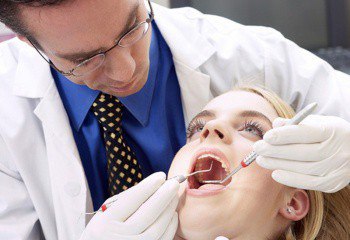
People who have such dentures are at risk, since the likelihood of food getting between the tooth root and the crown is quite high. As a result, with insufficient care, more and more microbes accumulate.
In addition, it is worth considering the service life of the crown. A pathological process may indicate that it needs to be replaced. In this case, no means will have the desired effect.
Inflammation under the crown can occur due to a doctor’s error during its installation, as well as due to accidental injury to the gums during surgery. If the pathology appears as a result of an accidental injury, then painkillers and anti-inflammatory drugs should relieve the symptoms. If there is an error during installation, you will have to replace the latter.
Gum inflammation can affect both adults and children. The patient is always tormented by questions about why he has gum inflammation and how to treat it in order to get rid of it as quickly as possible. This is enough unpleasant symptom, which may indicate many oral diseases. In addition to inflammation, bad breath and pain in the entire oral cavity may also occur. Such inflammation, if left without proper treatment, can lead to tooth loss. A specialist will tell you how to treat gum inflammation and how to eliminate pain.
Inflammation of the gums is accompanied by pain when eating cold and hot foods. Bleeding of the teeth, suppuration at the base of the teeth and their instability may occur. Oral diseases that can lead to gum inflammation:
- Gingivitis. With this disease, the mucous membrane of the gingival papillae between the teeth or at the edge of the gum is damaged and inflammation of the gum around the tooth occurs. In this case, inflammation is accompanied by sensitivity of the oral cavity, swelling and bleeding. It happens that pain moves to the ear or temple. This disease requires treatment, since if the process is started, it can develop into more serious illness– periodontitis. Gingivitis can be caused by damage to the oral mucosa while brushing your teeth or eating. It can also appear when going to the dentist, who placed a crown, braces, etc. incorrectly or incorrectly. Gingivinitis can occur in children and pregnant women; an increase in body temperature and general malaise may occur. It is necessary to urgently consult a doctor for examination. This disease can also be a consequence of an underlying human disease.
- Periodontal disease. This disease occurs due to uneven load on the teeth, so it most often worries older people. There is slight gum bleeding and swelling. There may be no pain with periodontal disease. If periodontal disease was caused by an incorrectly placed denture or filling, then simply treating periodontal disease; without correcting the situation due to the dentist’s mistake, the inflammation will not go away.
- Periodontitis. He may find a person after his illness with gingivitis, as its second advanced stage, the person is bothered by severe loosening of the teeth and if treatment is not started in a timely manner, there is high risk that teeth may fall out. Severe inflammation and bleeding of the gums also appears.
Inflammation of the gums, if associated with one of the oral diseases, is usually not the only symptom. There is also minor bleeding that may occur when brushing your teeth or eating. Bleeding in the oral cavity cannot start on its own, just as the gums could not become inflamed just like that, so if blood is noticed, then something is wrong with the teeth and you need to visit the dentist.
Common Causes of Gum Inflammation
The causes of gum inflammation can be different, they can be divided into two groups – external and internal. TO external reasons can be attributed to the impact on the teeth that comes from the outside. External reasons include:
- malocclusion;
- the presence of stones on the teeth;
- non-compliance with the rules of dental hygiene or its complete absence;
- poor dentist work - incorrectly installed fillings, crowns, etc.
External causes can also include smoking. Everyone knows and talks about the fact that it negatively affects a person’s health as a whole, but not everyone knows that smoking, first of all, kills teeth and can cause gums to become inflamed. Therefore, if you have problems with your teeth, it is better to quit smoking; if you cannot quit smoking altogether, then at least reduce your consumption by half.
TO internal reasons can be attributed:
- problems with genetics;
- decline immune system person;
- illnesses internal organs – diabetes, problems in gastrointestinal tract and heart disease;
- flaw important vitamins in the human body;
- inflammation of the gums during pregnancy (in rare cases);
- taking certain medications.
In situations where dental problems arose against the background of diseases of internal organs, without help medical specialists a narrow profile is not enough. The dentist will give a referral to a specific doctor who will be able to find out the underlying disease and prescribe effective treatment. As a last resort, the patient will be referred to a therapist. You should not ignore problems with the oral cavity, because they can be a signal for the onset of problems in the body, and also leave a person without teeth.
Gum inflammation in children is quite common. Purulent inflammation of the gums and inflammation of the gums after tooth extraction are frequent companions for patients with bad dentists. That is why the choice of a doctor must be taken seriously, especially if the doctor is chosen for a child. When your baby's gums become inflamed and bleed, they may experience severe pain, which can be almost unbearable.
Gum treatment
How should gum inflammation be treated? At the first symptoms of gum inflammation, before going to see a doctor, the person himself can carry out first aid to relieve the inflammation. Such assistance includes rinsing the mouth with solutions:
- furatsilina;
- baking soda diluted in water;
- chlorhexidine;
- potassium permanganate.
Antibiotics for gum inflammation will also help to effectively cure the disease. If possible, you can use ointments that will help reduce inflammation. The solution and ointments will help reduce inflammation and prevent it from spreading throughout the entire oral cavity. The solutions also have a disinfecting effect, so infection will not occur.
After visiting a doctor, he may prescribe certain medications that will eliminate inflammation, itching and irritation in the mouth. Such means include:
- furatsilin;
- Listerine;
- chlorhexidine;
- stomatophyte;
- rotokan;
- miramistin;
- hydrogen peroxide;
- malavit.
To completely eliminate the symptoms, you must complete the full course of treatment prescribed by your doctor. Ointments, gels and medicated mouth rinses are also suitable for eliminating inflammation. Effective gels for gums for inflammation and ointments for gums for inflammation:
- Stomatofit A.
- Asepta;
- Holisal;
- Gengigel, which contains hyaluronic acid;
- Metrogyl denta;
- Dental;
- Solcoseryl.
In case of inflammation of the gums it is very important factor is the choice of toothpaste. Recommended pastes if you have this problem include:
- The president;
- Lakalut;
- Parodontax.
Medicinal toothpastes should be taken for no more than a month in a row, then you need to take a break. When prescribing a treatment regimen by a doctor, it is necessary to take into account individual characteristics person, intolerance to certain substances.
Traditional methods of treatment
Application traditional methods The treatment is very effective in getting rid of gum inflammation. It is customary to treat gum inflammation at home with alcohol tinctures, as well as herbal decoctions and tinctures. After a doctor has made a diagnosis and prescribed treatment, you can consult with him about what methods home treatment will bring a positive effect in a specific problem.
Herbs have an antiseptic effect, so they do an excellent job of relieving inflammation. They also rarely provide Negative influence on the human body, usually only with individual intolerance. Also, the use of traditional medicine will help you understand how to rinse your gums when you have inflammation, how to effectively treat gum inflammation at home, and how to effectively rinse your mouth when you have gum inflammation?
Recipes for home treatment of gum inflammation:
- Hydrogen peroxide. To do this, you need to prepare a mixture of a 6% hydrogen peroxide solution and one glass of boiled water. You need to rinse your mouth several times for at least five days.
- Chamomile. This remedy for gum inflammation has been used since ancient times. It helps in getting rid of the symptoms of many diseases, ranging from nervous diseases to skin diseases. IN in this case Brew chamomile flowers (2 tbsp) in 250 ml of hot boiled water and let it brew for half an hour. After which you should rinse your mouth with the resulting infusion.
- Oak bark. When your gums are inflamed you need to take 2 tbsp. oak bark and boil for 10 minutes in 500 ml. water, leave to infuse for 10 minutes. Then strain and leave to cool. You need to rinse your mouth several times a day, using half a glass of the resulting decoction. It is recommended not to get carried away with such treatment, as the teeth may begin to darken.
- Yarrow. It is used for baths. You need to take 2 tbsp. herbs and place them in half a liter of water, put on fire and boil for a quarter of an hour. Then strain the resulting broth and make mouth baths.
- Sea salt. It copes well with gum inflammation, as it has a good antiseptic effect. Dissolving 1 tbsp. such salt in 250 ml. You need to rinse your mouth with water.
- Calendula. She is advised to rinse her mouth. Take 1 tbsp. l. dried calendula flowers and pour 200 ml. boiled water. Leave to infuse for 30 minutes, and then rinse your mouth with the resulting infusion.
- Aloe leaf. To treat inflammation with an aloe leaf, you need to wash it, trim the spines, cut lengthwise, and apply it to the inflamed gum up to 7 times a day.
- Plantain. How to relieve gum inflammation using plantain? It can be used in several ways. Either simply rub the leaves on your gums, or you can chew them. You can prepare an infusion from plantain leaves. It is very effective for bleeding gums.
- St. John's wort. You need to take 1 tbsp. herbs and pour into 250 ml. boiling water, leave to infuse for half an hour or dilute alcohol tincture in water and rinse the mouth with the resulting mixture.
Herbs are astringent and antiseptic properties, therefore they fight the problem of gum inflammation very well. Due to the fact that herbal infusions cannot be stored for a long time, they need to be prepared every day. Only if the decoctions are fresh will they help in getting rid of the problem.
And severe painful sensations, a natural question arises, how to treat gum inflammation. Therapy will depend on what exactly caused the circulatory disorder in the periodontium.
Due to the inflammatory process in the gums, small capillaries become brittle and brittle, resulting in bleeding. The degree of bleeding depends on the severity of the inflammation. Sometimes the gums bleed only under mechanical stress, sometimes even during articulation. Gums can become swollen in a child during the eruption of baby or molar teeth, or in adults.
Dental diseases that are accompanied by bleeding gums: gingivitis, periodontitis, periodontal disease, stomatitis, pulpitis, periodontitis. One of the main causes of these diseases is poor-quality or periodic oral care, as a result of which deposits form on the teeth, which provoke inflammation. But there are a number of other reasons when gums can become inflamed:
- hypovitaminosis;
- medical intervention, such as tooth extraction or whitening;
- somatic diseases;
- genetic predisposition;
- taking blood thinning medications;
- hormonal imbalance;
- bad habits, in particular smoking.
Often the gums become inflamed during pregnancy, puberty or menopause.
If tartar is not to blame for bleeding and inflammation of the gums, then consultation with other specialists is required in addition to the dentist.
If the inflammation of the gums does not decrease after five days after the removal of a tooth or other medical intervention, then you need to go to the doctor and not try to solve the problem at home. Complications can be quite serious.
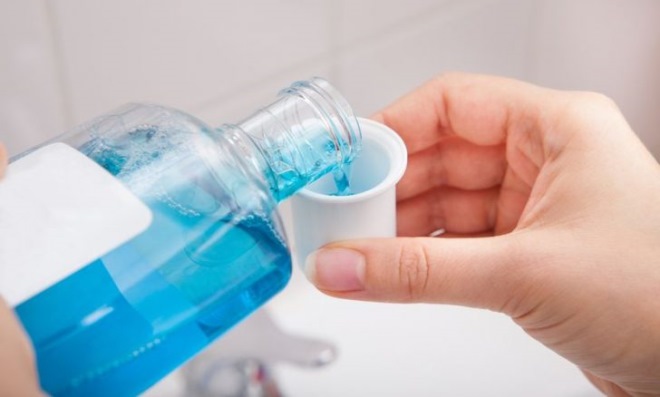
First aid for gum inflammation is rinsing with antiseptics. Can be used pharmaceuticals, as well as decoctions made independently. They will help eliminate pathogenic bacteria and stop the spread of the inflammatory process. Then you need to restore blood circulation in the periodontium. This can be done using ointments, gels, sprays.
If the gums are inflamed over one tooth, then this is most likely a complication of caries. In this case, you need to visit the dentist as soon as possible, otherwise the purulent exudate may affect the jaw bone and cause general intoxication of the body.
Drugs for periodontal disease
Medicines are prescribed by a doctor after diagnosis. The most common remedies for gum disease:
- The drug "Parodontocide" can be used both for therapy and for the prevention of diseases. Available in the form of a spray, solution, gel. Contains sage, mint, clove oils, sodium fluoride. It has an analgesic, antiseptic, anti-inflammatory, deodorizing effect. Promotes rapid tissue regeneration, does not destroy beneficial microflora in the mouth;
- the drug from Bulgaria “Maraslavin” is produced only for rinsing. The product consists of herbs wormwood, cloves, black pepper, and zingiber rhizome. The product relieves pain, destroys bacteria, has an anti-inflammatory effect, and rarely causes allergies. At the initial stage of therapy, the drug causes redness of the mucous membrane and increases the secretion of exudate, which leads to the release of toxins from periodontal pockets. The medicine has a specific sour taste and smell;
- "Polyminerol" is prescribed for the treatment of dental diseases and for prevention. It relieves inflammation, accelerates tissue regeneration, reduces bleeding and capillary permeability, relieves pain, and stimulates phagocytosis (immunity). The drug can be used during pregnancy and lactation.
Taking antibiotics
For complex and advanced diseases, the dentist may prescribe antibiotics, since intoxication of the body occurs. Antibiotics are often prescribed as an addition to primary therapy for periodontitis. They are contained in tablets, gels, and solutions. Antiseptic liquids containing antibacterial agents are prescribed to reduce bacteria in the mouth and are used after.
Ointments and gels
Ointments help quickly eliminate inflammation, reduce bleeding, and relieve itching. An undoubted advantage is that the ointment acts locally, that is, only at the site of application. This way there is less impact on the body, which reduces the risk of possible side effects and works faster. The remedy for gum disease is mainly produced in the form of gels, since this makes it easier to apply and lasts longer on the tissue, enveloping it with a protective film. Such drugs include:
| Solcoseryl. | Has regenerating properties, stops inflammatory process, destroys pathogenic microorganisms. |
| Metrogyl and Apident-Active. | They relieve swelling of the gums, fight bacteria and have an analgesic effect. |
| Dental. | Accelerates regeneration and relieves pain. |
| Metrogil Denta. | Reduces inflammation and itching, contains an antibiotic. |
| Holisal. | Provides analgesic and anti-inflammatory effects. |
| Parodium. | Antiseptic with anti-inflammatory, deodorizing and astringent effects. |
| Kamistad. | Eliminates pain, destroys microbes, has an anti-inflammatory effect. |
| Asepta. | Based on propolis, contains antibiotic and antiseptic. Refreshes the oral cavity, removes swelling and bleeding. |
To speed up the healing of wounds and cracks, you can use sea buckthorn oil, Rotokan, Stomatofit, Parodontocid spray.
Antiseptics
Used for rinsing and irrigating the mouth antiseptic solutions. They will destroy pathogenic microorganisms and prevent infection open wounds. Such means include:
- Chlorhexidine;
- Furacilin;
- Miramistin (effective antifungal and antiviral agent used for herpes stomatitis);
- baking soda.
Rinsing is carried out for up to 10 days, since they change the microflora of the oral cavity. To combat infection, you can use lozenges Septolette, Hexalise, Laripront, Faringosept.
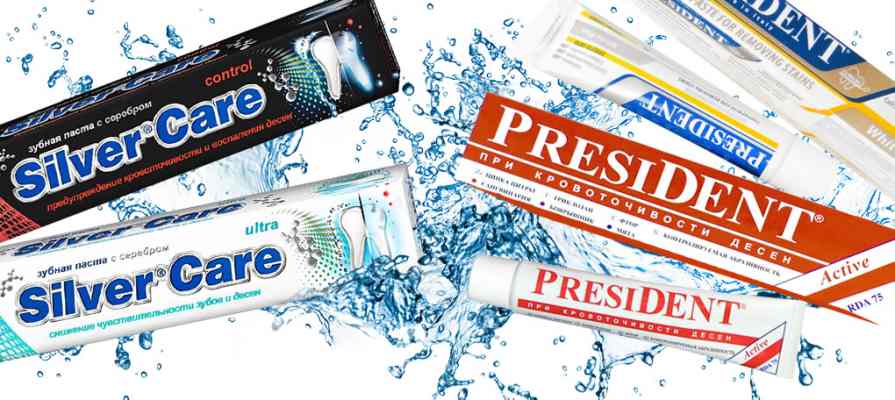
Toothpaste does not replace treatment, it is just a means of prevention or a temporary solution until a visit to the dentist. The paste relieves inflammation, but does not eliminate the cause. It cannot be used constantly, since it contains antibiotics and antiseptics, which harms the microflora of the oral cavity. Specially designed medicinal pastes for bleeding gums, they contain components that relieve periodontal swelling, eliminate pain, accelerate tissue restoration, and destroy pathogenic microflora. Most effective means hygiene pastes are:
- Lacalut Active. Consists of silicon abrasive and aluminum lactate. This allows you to reduce inflammation and effectively remove soft plaque. Behind a short time eliminates bleeding gums, smoothes their looseness, which allows you to remove sharp pain. Contains antiseptic and antibiotic;
- Parodontax. Contains peppermint, myrtle, sage, chamomile, rotania, minerals and sodium bicarbonate. The recipe for the product has remained unchanged for over a hundred years. Used for therapy and prevention. It has hemostatic and astringent properties. Pasta with a specific taste, which is not suitable for everyone;
- PresiDENT helps eliminate bleeding and swelling of the gums, promotes rapid regeneration of the oral mucosa, contains the antiseptic hexetidine;
- “Forest balm” is a product based on the herbs yarrow, chamomile, St. John's wort, celandine, and nettle. Effectively reduces inflammation and accelerates healing. The abrasiveness of the paste is low, which allows it to be used by people with thinned enamel.
Rinses, elixirs and herbal balms will help eliminate inflammation and stop the proliferation of pathogens. These products include Perio-Aid, PresiDent, VitizOrthodontic, Elfix, Forest Balm, Effectiv, Stomatofit Fresh.
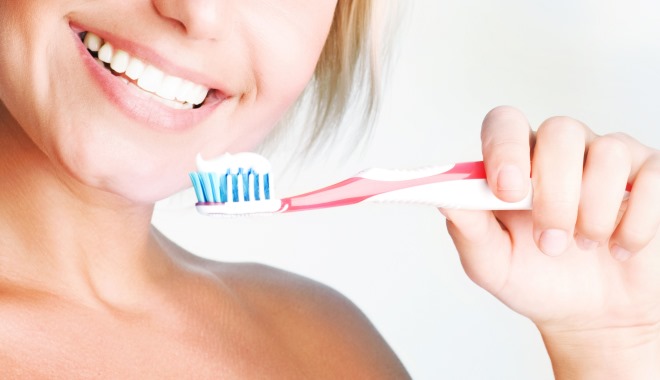
There are also general recommendations that will help strengthen the gums and improve blood circulation in them:
- pay attention to the technique of brushing your teeth; perhaps, during hygiene, trauma to the gingival papillae occurs;
- during gum therapy, it is better to use a soft brush;
- drink away vitamin complex, which contains vitamins C, B, E, K, PP;
- eat more fresh hard vegetables and fruits (carrots, apples, turnips);
- remove food particles from the mouth;
- if there systemic disease, it should be treated.
Relieving gum inflammation is not enough; it is important to eliminate the cause of periodontal disease.
To do this, you will still have to go to the dentist and have a procedure done, during which the tartar will be removed from the surface of the teeth and from under the gums. If periodontitis is diagnosed, you will need to visit a doctor for 10 days to rinse the periodontal pockets.
Treat sore gums necessary. Periodontal inflammation causes destruction bone tissue, reduces the elasticity of the epithelium. As a result, the tooth is no longer held in the socket and becomes mobile. If periodontitis was not diagnosed in time and therapy was not carried out, then it is necessary to remove healthy teeth and install dentures. To cure your gums, you need to see a periodontist.
Folk remedies
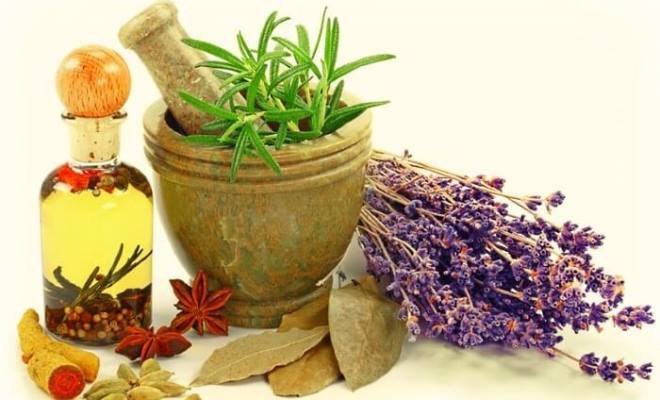
As an addition to the main therapy, the doctor may prescribe rinsing with herbal decoctions that have anti-inflammatory, analgesic, antiseptic, regenerating, and hemostatic properties. Funds from the people can also be used for prompt elimination pain even before visiting the dentist, since they have almost no contraindications and are available. If your gums are swollen, then Alternative medicine offers the following tools:
- aloe has antiseptic, healing, anti-inflammatory properties. You can use aloe juice (apply a leaf cut lengthwise), or as an infusion;
- sea salt will help kill bacteria and stop bleeding. To do this, you just need to dissolve a spoonful of salt in a glass of water and rinse your mouth as often as possible;
- oak bark has an anti-inflammatory, strengthening effect. Four tablespoons of crushed bark are placed in a liter of water and boiled for about 10 minutes, then allowed to stand for half an hour. Rinse your mouth 2-3 times a day for two weeks;
- Calendula has an antibacterial effect. To prepare the infusion, you need a spoon of dried flowers and 200 milliliters of boiling water;
- chamomile is a wonderful anti-inflammatory agent that helps fast healing fabrics. You need to brew two tablespoons of dried flowers in a glass of boiling water and leave for half an hour;
- sage removes periodontal inflammation, eliminates swelling and pain. Take one spoon of flowers for one glass of boiling water;
- St. John's wort, take a spoonful of the herb in a glass of boiling water and leave for at least 30 minutes.
Inflammation of the gums (gum gum) is a common disease of the oral cavity. This is a common problem that can occur by various reasons. If you suffer from gum swelling that lasts longer than a few days, you should contact your dentist. It happens that a visit to the dentist is postponed for some reason, and swollen gums create discomfort, so we have prepared several methods that can be taken to alleviate the condition at home.
Causes
Painful sensations in the oral cavity can be caused by various reasons:
- inflammation at the tip of the tooth root;
- caries and pulpitis;
- removal of a tooth;
- appearance of a wisdom tooth;
- gingivitis, periodontal disease;
- poor oral hygiene, tartar;
- gum injury after prosthetics;
- improper nutrition;
- immunity disorder.
Regardless of the cause, immediate measures must be taken to alleviate the condition and prevent complications.
Provoking factors for the development of gum inflammation
There are many provoking factors indicating why the gums around the tooth become inflamed. Often inflammation is caused by dental pathologies. The appearance of the inflammatory process is influenced by:
- cold;
- smoking;
- failure to seek medical help in a timely manner;
- stress.
Also, the condition of swelling can be caused by illness of cardio-vascular system or disruption of the functioning of the body as a whole.
Symptoms

Sometimes the situation does not require medical intervention. If the tumor was preceded by tooth extraction, this is a normal reaction, provided that the swelling decreases every day. It may be enough to rinse your mouth herbal infusion or change the brush. A visit to the dentist is inevitable if the following symptoms accompany swelling:
- increasing inflammation and pain of the gums;
- in addition to the tumor, the integrity of the tooth is compromised;
- the presence of an abscess;
- painful sensations when biting;
- deterioration of health, fever, chills, weakness;
- repeated inflammation of the gums;
- the occurrence of bleeding after eating hard foods;
- pain when swallowing;
- spread of tumor to the cheek
- presence of putrefactive odor;
A timely visit to the clinic will allow you to find the cause of the swelling and eliminate it.
Stages of inflammation
- Stage 1. In the first stages, everything is almost asymptomatic. The disease begins with the appearance of bleeding gums. This is the beginning of the inflammatory process.
- Stage 2. After a short period of time, swelling of the mucous membrane of the gums occurs, gradually affecting nearby tissues. Causing discomfort. High, gradually increasing sensitivity of the gums appears,
- Stage 3. In the following stages, the pain affects the face and is pronounced. The patient has difficulty moving his jaw. The pain persists even at rest. This is caused by damage to the nerve fibers of muscle tissue.
The general health of a person worsens, the temperature rises, weakness, chills occur, how to remove the tumor? Timely start competent treatment contribute to a speedy recovery and return to a full life.
Diagnostics
To obtain an effective treatment result and eliminate the source of inflammation, it is necessary to determine the diagnosis and obtain recommendations from the dentist.
Treatment
The doctor will take an x-ray to clarify the diagnosis, the size of the inflammation and determine treatment options. Mostly therapeutic actions are as follows:
- Conservative treatment. With this method, pus drains out through the root canals.
- Surgery. The tooth is removed and the sockets are cleaned.
- Combined procedures. If there is an inflammatory process, but the tooth needs to be preserved, the method of applying an antiseptic under the filling is used. An incision is made to release the pus. The dentist decides which method is used.
Procedures for treatment at home are prescribed:
- rinsing;
- taking antibiotics;
- anti-inflammatory drugs.
Drug treatment (medicines)

After examination and diagnosis, the specialist prescribes drug treatment against gum inflammation.
Toothpastes that help eliminate the inflammatory process:
- Lakalut.Active,
- Paradontax.
Anti-inflammatory mouth rinses:
- Chlorhexidine;
- Miramistin;
- Chlorophyllipt.
The following tools are also used:
- Cholisal gel;
- Metrogil-denta,
To relieve gum inflammation, antibacterial treatment is prescribed, taking antibiotics:
- Lincomycin;
- Metronidazole
If the patient has a disease, then medications are used:
- Syphlox;
- Nolitsin.
All medications are prescribed by a doctor, do not self-medicate.
Surgery
If treatment with gentle methods is ineffective, surgical intervention. Surgical methods help eliminate the progression of the disease. Surgical interventions there can be 3 types:
- Open curettage. The operation is performed using local anesthesia and makes it possible to cleanse deep pockets. Incisions are made on the gums and ultrasonic cleaning is performed. The cavity is filled with drugs that stimulate tissue growth. After the procedure, the incisions are sutured, and the operation is considered complete. IN Lately curettage is performed using diode lasers: no blood loss and painless.
- Gingivectomy. The operation takes place under local anesthesia. Part of the gums and periodontal pockets are removed. Bone tissue is strengthened.
- Gumplasty. Part of the gum tissue is removed, the height of the gums is leveled, the pocket is restored, and an aesthetic appearance is given. The operation is carried out using local or general anesthesia. The choice is given to the patient. Treatment methods are determined by a specialist.
If you have to undergo surgery, do not be afraid of it; qualified specialists will prevent complications of the disease.
Complementary and alternative treatments at home
What to do at home with swollen gums? Sometimes there is a tumor, but the tooth does not hurt, what to do in this case? If a person does not have the opportunity to obtain a qualified medical care, you can perform several procedures at home to alleviate your condition. It is better not to let the matter develop into complications and take urgent measures before examining a specialist.
- Rinse your mouth with a water-salt solution. You should take 1 tsp. salt, add the same amount of soda to 1 glass of water. You can rinse your gums with a solution using antiseptics: Furacilin, Chlorhexidine, following the instructions;
- Teeth cleaning using anti-inflammatory pastes against bleeding: Parodontax, Tebodont.
- Treatment of gums with Metrogyl Denta after brushing your teeth 3 times a day.
- Whenever painful sensations when brushing your teeth, the gums should be treated with Dentol anesthetic.
Inflamed gums should not be heated with a heating pad. When heated, microorganisms actively multiply, which leads to increased inflammation.
If after 2 days there is no positive result, you should contact dental clinic to provide qualified treatment.
You should not take antibiotics without a doctor’s prescription, so as not to blur the picture of the disease. It is not recommended to mix various drugs so as not to cause harm to health.
Folk remedies (herbs for mouth rinse)

To eliminate swelling of the gums, folk remedies (herbs) are used. Patients are interested in how to rinse their mouth at home, what products to choose?
- Chamomile has anti-inflammatory properties. Take 2 tablespoons of dried flowers and add 1 cup of boiled hot water. You should strain the cooled infusion and use it to rinse your mouth.
- A medicine based on yarrow will bring relief to patients with gum inflammation. 2 tbsp. l. dried flowers are poured with 0.5 liters of hot water and boiled over low heat for a quarter of an hour. Then the solution should be filtered and used several times a day to rinse the mouth. .
- For gum swelling, plantain is often used. The leaf of the plant must be applied to the sore spots. An infusion or decoction is prepared from plantain.
- Nettle is used to prevent bleeding gums. The herb is poured with boiling water, then infused for 30 minutes. The infusion is used to rinse the mouth after meals.
- Calendula flowers are highly effective against gum tumors. Medicinal plant has wound healing and anti-inflammatory properties. This is the simplest and accessible remedy for gum problems.
- Treatment using a golden mustache gives good results. Grind a large leaf and brew with boiling water in the amount of 1 cup. Leave for 2-3 hours covered. Strain the product, add a teaspoon of salt and rinse your mouth 2 times a day.
Also from folk remedies The following methods are used:
- By advice traditional medicine if a condition occurs when the gums near the tooth are swollen, it is necessary to apply the pulp of the aloe plant to the inflamed area, prepare soda solution with the addition of a small amount of salt. To enhance the result, pour in 50 ml of a solution containing sage leaves.
- An excellent antiseptic medicine is hydrogen peroxide. The solution is used for rinsing gum inflammation.
- Oak bark has therapeutic effect. The infusion stops inflammation and eliminates unpleasant odors from mouth.
- Propolis has properties that influence gum swelling. 20 drops of tincture should be diluted in a glass of warm water. The solution is used to rinse the mouth several times a day.
- Finely chop the needles, place them in an enamel pan, then add water and bring to a boil. The broth is cooled and filtered. You should rinse your mouth with the resulting product 3-4 times during the day until the condition improves.
- Take beets and grate them. Place the resulting mass behind your cheek for 20 minutes. Then rinse with herbal infusion.
- Wash small raw potatoes thoroughly and grate them on a fine grater along with the peel. Apply to the sore cheek 3-4 times a day, changing the fresh composition.
There are a lot of recipes for home treatment, you should choose effective method which suits you best.
Nutrition
When gums are inflamed, food should not put pressure on the tumor and irritate the sore gums.
The menu should include products containing vitamins, microelements, and minerals that help improve the condition of teeth and improve immunity.
Review your diet.
- Dairy products restore a person's calcium deficiency, which is a material for the construction of bone tissue. Must be included in the menu dairy products, cottage cheese, cheese.
- Citrus fruits, sauerkraut, berries containing vitamin C will strengthen blood vessels and reduce bleeding gums.
- Fresh greens are effective means for strong teeth. It contains many useful substances. Containing potassium, vitamin B, vegetables such as parsley, dill, cilantro, increase immune defense, fight infections, and get rid of plaque.
- Garlic and onions contain zinc, which is a strong antioxidant that fights inflammation in tissues.
- Beekeeping products increase immune defense and help protect gums from inflammatory processes.
- Berries containing pectin help stop the development of infection.
- Eggs, pine nuts, and almonds are sources of vitamin D.
Exercises
Dentists recommend massage to strengthen the condition of the gums to prevent diseases. During hygiene procedure brush your teeth, massage the gum area in a circular motion within 2 minutes. This simple procedure gives a good effect.
The following exercise is used:
Close your lips and touch the inside with your tongue upper jaw. Knock your teeth 20-30 times. This method should be carried out 3 times a day. The manipulation strengthens the muscles of the mouth and gum area. Take some time to keep your gums healthy.
Prevention
To keep your gums healthy, you should follow preventive measures:
- proper oral hygiene (brushing teeth 2 times a day for 3 minutes);
- selection of brushes, taking into account hardness;
- use of medicinal pastes;
- balanced diet.
- healthy lifestyle.
- preventive examination by a dentist at least once every six months and professional cleaning of deposits.
These simple rules should be followed, because it is easier to prevent a disease than to undergo grueling treatment.
Vitamin supplements for prevention
To strengthen the body and prevent gum inflammation, the body needs vitamins.
- When a person lacks vitamin A, it can weaken gums and lead to deterioration of tooth enamel. Vitamin A is found in carrots, orange fruits, fish oil, liver.
- A lack of vitamin D can lead to bone integrity and the formation of carious cavities. The vitamin is found in milk, fatty fish, and egg yolk.
- When the body does not have enough vitamin C, the gums begin to bleed, and the immune defense. Oranges, black currants, red peppers, rose hips, and sorrel will help replenish its content in the body.
- Lack of vitamin B leads to tooth loss. The vitamin is found in milk, legumes, buckwheat, yeast, garlic, beef liver
- Vitamin E affects wound healing. Contained in cod, butter, wheat.
- Vitamin K helps eliminate bleeding gums. It is present in large quantities in tomatoes, green peas, and potatoes.
- Vitamin P deficiency negatively affects the condition of the oral cavity. Contained in legumes, beef liver, and yeast.
The pharmacy chain produces balanced vitamin complexes that have a beneficial effect on the condition of teeth and gums.
- Calcium D3 Nycomed - will help replenish calcium deficiency.
- Kaltsinova will strengthen tooth enamel and prevent the development of caries.
- Dentovitus is a vitamin complex that protects teeth and gums from diseases.
It is necessary to choose the right complex of vitamins, minerals and nutritional supplements.
If your teeth are loose and your gums are bleeding, use special additives: vitamins A, C (dosage recommended by doctor), vitamin D (400–600 mg)
Dietary supplements are a dietary supplement, not a medicine. You should consult your physician before taking supplements. Supplements should be taken before meals.
Forecast
An inflammatory process that is not treated in a timely manner can provoke tooth loss and development oncological pathologies maxillofacial department. Gum tumor is not a fatal condition; the prognosis for life is satisfactory. Only the quality of life deteriorates due to the painful condition.
When initial symptoms inflammation should go to the clinic. The dentist will advise you on what products to use to treat gum disease and improve their condition.
There are many ways to improve gum health. It is important to choose correct methods to know what to do at home. The use of folk remedies will give a calming effect and is used as additional measures in the treatment of gum disease.
Video


